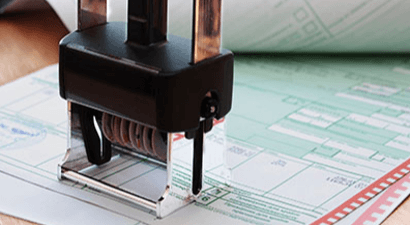Sellers of goods to produce proof of payment of duty
An often-overlooked section of the Customs & Excise Act 91 of 1964 (“the Act”) is section 102. As most know, the Act is self-regulating in that those who operate within the ambit of the Act are expected to ensure that they comply with its provisions.
One such provision is section 102 which imposes an obligation on ‘any person selling, offering for sale or dealing in imported… goods’, to produce proof as to whom the goods were purchased from when requested to do so by a customs official. If the person acted as the importer of the goods, he must also prove to the customs’ official that duty was paid on the imported goods.
In terms of section 102(4), if in any dispute in which customs raises the question of whether the proper duty has been paid, it shall be presumed that duty has not been paid, unless the contrary is proved. Therefore, the onus is on the taxpayer to prove payment.
Another provision customs’ clients have to comply with is section 101 which provides that records must be retained for at least 5 years. Both section 101 and 102 were put to the test by the SCA in the Commissioner, South African Revenue Service v Saleem 2008 (3) SA 655 (SCA).
Saleem was the owner and manager of a small clothing retailer. During October 2006, customs officials seized and removed approximately R1.2 million worth of goods from the premises stating that the goods were imported into the Republic without Saleem bringing the necessary duty to account. Saleem was unable to produce proof of purchase or proof that the correct duty had been paid on importation. This is despite his statutory duty to maintain books of account and documents reflecting from whom the goods were purchased.
Some importers may try to import goods from a SACU Member State (being Botswana, Namibia, Lesotho or Eswatini) in order to avoid paying duty in South Africa. Such importers need to be weary of section 44(8A), in terms of which, any person who deals with or in any imported goods which should have been duly entered in any other Member State, shall be liable for the duty on those goods brought into the Republic from that SACU Member State, and if the question arises whether the goods have been duly entered, it shall be presumed, unless the contrary is proved, that the goods have not been entered.
Generally, the standard of proof in a civil matter is on a balance of probabilities, with the onus of proof resting on the party making the assertion. As was stated in Pillay v Krishna and Another 1946 AD 946 at p. 952 “he who asserts, proves, and not he who denies, since a denial of a fact cannot naturally be proved, provided that it is a fact that is denied and the denial is absolute.”
However, where revenue law is concerned, there is a trend towards the inclusion of provisions placing the onus of proof on the taxpayer. It is therefore imperative that taxpayers ensure that they retain proof of purchase and /or proof that the duty and any other taxes were paid at the time of importation. Failure to do so could have massive financial consequences for the taxpayer.





